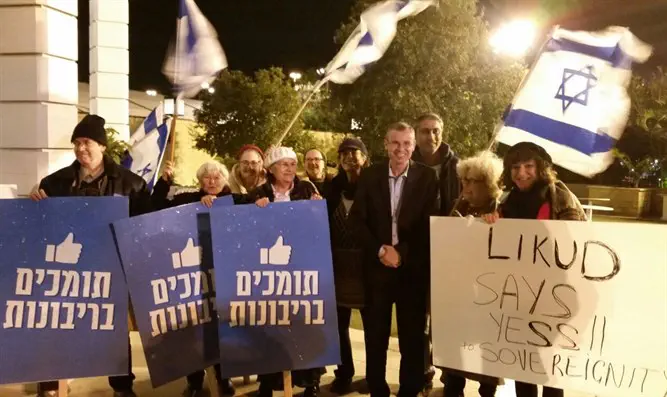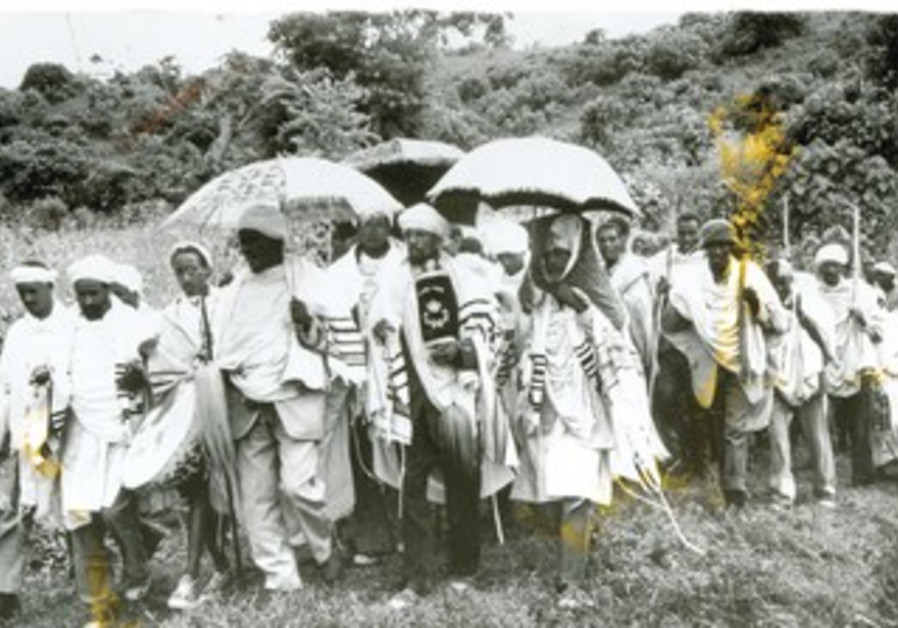rylah
Gold Member
- Jun 10, 2015
- 22,975
- 4,876
- 290
"The people demand, the leadership commits itself: sovereignty!"
A moment before the primaries in the Likud, the sovereign movement is issuing yet another call for the support of voters who have declared and committed themselves to advancing the vision of sovereignty in Judea and Samaria during the next term.
In this context, the movement produced a video in which senior Likud figures and candidates in the primaries express a firm stance on the vision of sovereignty. This video joins previous calls made by the movement in large distribution groups of Likud voters and supporters of settlement in Judea and Samaria.
The movement noted with satisfaction the centrality of the vision of sovereignty in a large number of campaigns of candidates for primaries in the ruling party, the Likud. "The leadership of the entire national camp and the leadership of the Likud in particular understood its role in leading a national Zionist and historical vision, not only by rejecting the dangerous ideas of the left.
The leaders of the movement, Yehudit Katzover and Nadia Matar, continue to say: "The Likud and the national camp are in power for a long time and now it has to prove that it has the power to control and outline a historical political path that not only inhibits the ideas of the left, The next term is a real test for the leadership of the national camp. "
Members of the movement mention some of the quotes that accompanied the Likud's internal election campaign and dealt with the vision of sovereignty and a commitment to advance it in the next term:
Knesset Speaker Yuli Edelstein said in an interview with Udi Segal in "Before the News" (Channel 13): The next term will be characterized by advancing the vision of Israeli sovereignty in Judea and Samaria. Until a few years ago, the vision seemed detached from reality and today it is a consensus in the national camp. In an interview with Yisrael Hayom, Edelstein said: "The 21st Knesset will begin to apply Israeli sovereignty over Judea and Samaria, at least I will do everything in my power to make this happen."

Arutz Sheva
A moment before the primaries in the Likud, the sovereign movement is issuing yet another call for the support of voters who have declared and committed themselves to advancing the vision of sovereignty in Judea and Samaria during the next term.
In this context, the movement produced a video in which senior Likud figures and candidates in the primaries express a firm stance on the vision of sovereignty. This video joins previous calls made by the movement in large distribution groups of Likud voters and supporters of settlement in Judea and Samaria.
The movement noted with satisfaction the centrality of the vision of sovereignty in a large number of campaigns of candidates for primaries in the ruling party, the Likud. "The leadership of the entire national camp and the leadership of the Likud in particular understood its role in leading a national Zionist and historical vision, not only by rejecting the dangerous ideas of the left.
The leaders of the movement, Yehudit Katzover and Nadia Matar, continue to say: "The Likud and the national camp are in power for a long time and now it has to prove that it has the power to control and outline a historical political path that not only inhibits the ideas of the left, The next term is a real test for the leadership of the national camp. "
Members of the movement mention some of the quotes that accompanied the Likud's internal election campaign and dealt with the vision of sovereignty and a commitment to advance it in the next term:
Knesset Speaker Yuli Edelstein said in an interview with Udi Segal in "Before the News" (Channel 13): The next term will be characterized by advancing the vision of Israeli sovereignty in Judea and Samaria. Until a few years ago, the vision seemed detached from reality and today it is a consensus in the national camp. In an interview with Yisrael Hayom, Edelstein said: "The 21st Knesset will begin to apply Israeli sovereignty over Judea and Samaria, at least I will do everything in my power to make this happen."

Arutz Sheva

